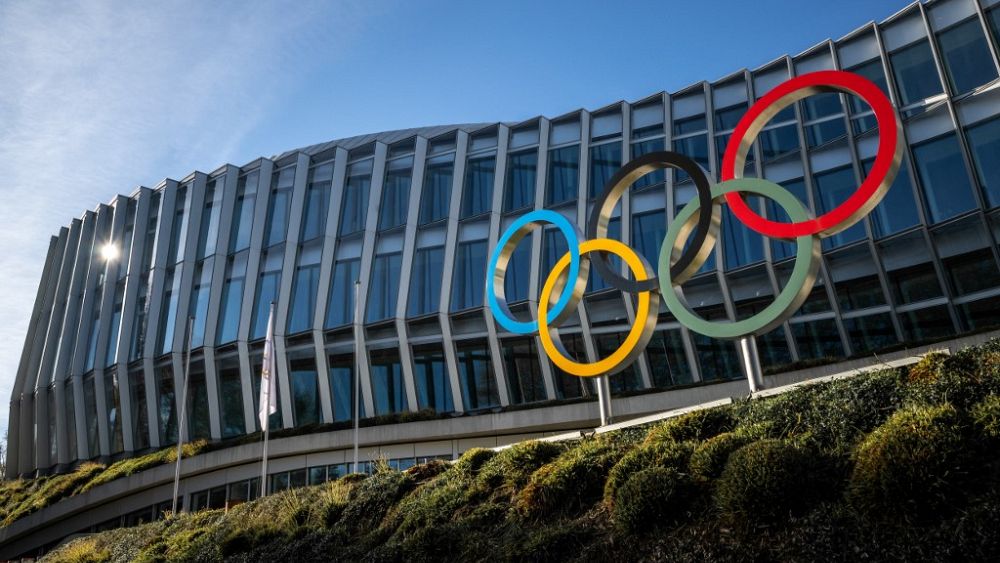
Will we see Russian and Belarusian athletes in neutral uniforms at the Paris Olympics? The International Olympic Committee (IOC) has said it will not set a specific framework for deciding on this issue and, in the meantime, qualifications for many Olympic disciplines are already underway.
“The IOC is trying to find a middle ground by admitting athletes from Russia and Belarus as neutral athletes. But because many federations and national Olympic committees are resisting, I think we will see a very limited presence of athletes from these two countries,” says Daniel Reich, an associate professor at Georgetown University in Qatar and author of research on politics and sport.
Neutral status isn’t everything
In March, the International Olympic Committee recommended that Russian and Belarusian athletes who did not publicly support the war in Ukraine and were not affiliated with the army be allowed to compete exclusively in neutral status.
“The IOC made it clear that none of those who served in the army, who publicly supported the war, will be allowed to participate in the Olympics. So the bar is already quite high, as many Russian athletes are linked to the Russian army,” Reich explains.
But many Olympic sporting federations have not yet worked out the criteria for the return of Russians and Belarusians to their competitions. At the same time, the recommendations of the International Olympic Committee do not apply to the Olympic Games.
“There is too much resistance – not only from Ukraine, but also from some of the countries that hold qualifying competitions, such as Poland, from some national Olympic committees, especially from Europe and North America, and also from some influential federations, such as athletics,” says Daniel Reich.
Russia and Belarus not invited to the party
Among the 10 international federations that followed the IOC’s recommendation, fencing, cycling, judo or taekwondo immediately sanctioned their return, even if it meant moving the European Fencing Championships from Poland to Bulgaria (Warsaw refused to issue visas to the Russians). The Judo and Taekwondo World Championships were held without Ukrainian athletes, who were asked by their government to boycott the two events.
“We won’t see Russian athletes in team sports like football and basketball,” Reiche explains,” because the qualifying events have already taken place. We probably won’t see Russian and Belarusian athletes in sports such as athletics, where there is too much resistance to their return. But there are sports – such as martial arts – that allow Russian and Belarusian athletes to compete in qualifying events.”
This week, a year before the Paris Olympics open, the IOC has already made its traditional mailing of invitations to the Games to National Olympic Committees (NOCs). 203 countries have been invited, with the exception of Russia and Belarus, as well as Guatemala, whose NOC has been suspended since October 2022 due to problems with political interference.
Sport and politics – things together?
Experts assume that the IOC will make a decision as late as possible, most likely in spring 2024, and even eligible athletes may not have time to qualify. How legitimate are such actions? And do they not violate the principle of separation of sport and politics?
On 28 July, the head of the Russian Olympic Committee, Stanislav Pozdnyakov, accused the International Olympic Committee of acting “in the interests of Ukraine” after the IOC called for “sensitivity” towards Ukrainian athletes.
“The IOC(…)has taken the side of the political conflict and started to act in the interests of this side,” Pozdnyakov wrote in a statement published on Telegram, reacting to the disqualification of a Ukrainian sabre fencer who refused to shake the hand of her Russian rival after defeating her at the World Fencing Championships.
Where to draw the line?
“President Thomas Bach is right when he says that there are about 70 conflicts in the world,” says Daniel Reich.
“We have to answer the question: where to draw the line. Of course, the invasion of Ukraine is a very gross violation of international principles and standards by Russia. But there are a number of other conflicts.
“International sport should be an arena where everyone meets, regardless of nationality, ethnicity, religion, gender, sexual orientation, etc. But of course, this is a very critical decision and situation. We have to accept the feelings of the Ukrainian people and athletes who do not want to compete with those who invaded their country. (…) But again, this is not the only conflict in the world. And we should also not forget that many Russian and Belarusian athletes are against the war.
“So the IOC here is trying to find a compromise that would suit everybody. And often when you try to please everybody, some people say that you have done everything wrong.”
